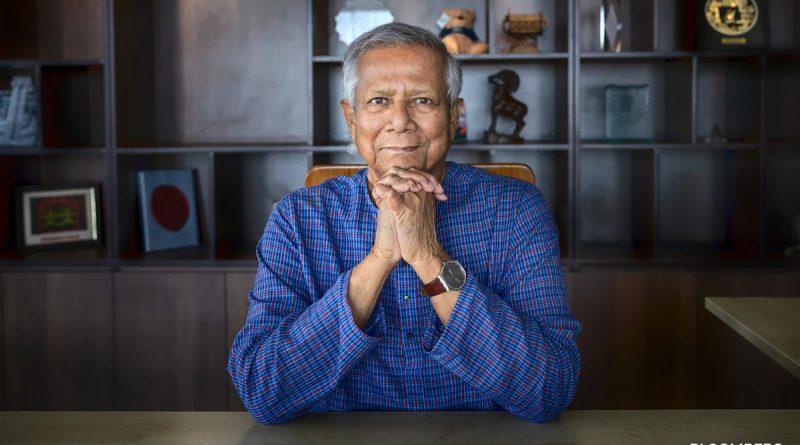From Poverty to Power: The Inspiring Journey of Muhammad Yunus, Bangladesh’s Leading Figure
Muhammad Yunus is one of Bangladesh’s most renowned personalities.
Bangladesh is entrusting one of the nation’s most celebrated intellectuals to bring steadiness to a country marked by coups and political turmoil.
Recognized for his efforts in reducing poverty and honored with a Nobel Peace Prize, Muhammad Yunus has been appointed as the leader of a new temporary government following the sudden removal of Sheikh Hasina as prime minister this week. Despite avoiding involvement in politics, Yunus is a prominent figure in Bangladesh and holds significant influence with Western elites.
The task of restoring stability to Bangladesh will be a challenging one for Yunus. Recent clashes between demonstrators and security forces resulted in the deaths of over 300 individuals, marking one of the most severe instances of violence in the history of the South Asian nation. While Hasina brought millions out of poverty through garment exports, economic progress has slowed down in Bangladesh, leading the International Monetary Fund to provide financial assistance.
The unexpected appointment of Yunus by the military to lead Bangladesh temporarily is a surprising development for the economist. In recent years, Yunus has dealt with around 200 charges in Dhaka’s courtrooms, including accusations of money laundering and corruption. He and his supporters claim that Hasina’s government was behind the legal challenges, possibly perceiving him as a threat to her authority. Hasina denied these allegations.
Best known for establishing Grameen Bank and pioneering microcredit, providing small business loans to the poorest individuals globally, Yunus has spent much of his life in the public eye, with politics being largely uncharted territory for him. Following the splintering of the Bangladeshi government in 2007 and the military seizing power, Yunus, who had never pursued public office, contemplated forming a new party but abandoned the idea within weeks.
“I’m very uncomfortable with politics,” he expressed in a recent interview.
Yunus brings considerable influence to his role and is a favored choice among numerous Western governments. Supported by individuals across various sectors and continents, he has cultivated relationships with European royals, business magnates like Richard Branson, and the Clintons, who assisted in expanding his microcredit programs to the United States. Described by his friends as a visionary committed to Bangladesh and uplifting the impoverished, Yunus is viewed as a moral leader who prioritizes serving others over self-promotion.
“He is a voice for the marginalized,” remarked Paul Polman, former CEO of Unilever Plc and a close associate. “He’s a moral leader. He doesn’t like to talk about himself but focuses on those he serves.”
Yunus’ reputation has earned him admiration in Bangladesh, including from the military, which previously supported his initial venture into politics. Following his Nobel Peace Prize win in 2006, thousands of Bangladeshis flocked to hear him speak at events. Many still show reverence by bowing and touching their hearts upon seeing him. In recent years, Yunus has concentrated on expanding numerous social enterprises, including those offering free healthcare, vocational training, and telecommunications services to underprivileged Bangladeshis.

Muhammad Yunus in his office in Dhaka.
Photo Credit: Bloomberg
Whether Yunus will transition more deliberately into politics or merely serve as a temporary leader until elections are held remains uncertain. As protests intensified in Dhaka in recent weeks, Yunus publicly condemned the violence and characterized Hasina’s crackdown as a threat to democracy, but he did not indicate any aspirations to assume a more formal role in shaping a new government.
“I’m not a politician,” he reiterated in a recent interview. “This is the last thing I will ever do.”
Waiting for response to load…

